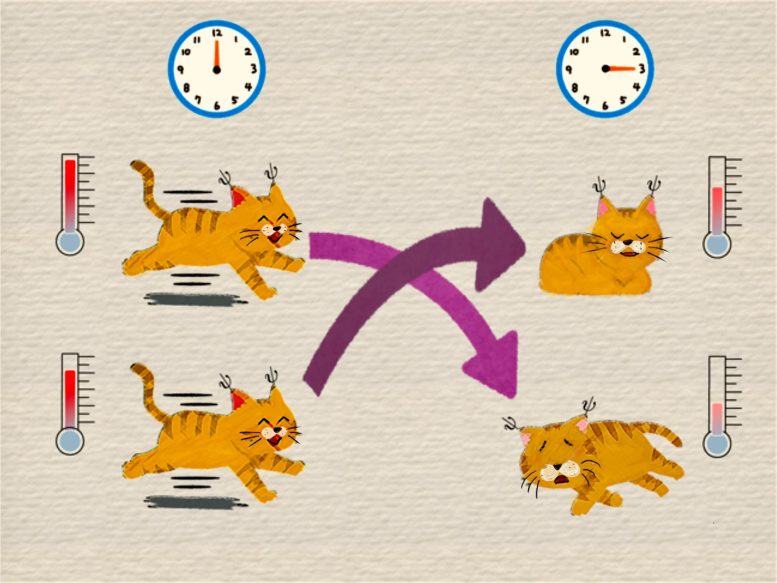
Hotter quantum systems can cool faster than initially colder equivalents.
Does hot water freeze faster than cold water? Aristotle may have been the first to tackle this question that later became known as the Mpemba effect.
This phenomenon originally referred to the non-monotonic initial temperature dependence of the freezing start time, but it has been observed in various systems — including colloids — and has also become known as a mysterious relaxation phenomenon that depends on initial conditions.
However, very few have previously investigated the effect in quantum systems.
What Is the Mpemba Effect?
The Mpemba effect is a counterintuitive phenomenon where hot water can freeze faster than cold water under certain conditions. Named after Erasto Mpemba, a Tanzanian student who observed this effect in the 1960s and subsequently brought it to the attention of the scientific community, the phenomenon has been a topic of curiosity for centuries, with references dating back to the likes of Aristotle. The exact cause of the Mpemba effect is still a topic of debate among scientists.
Recent Findings
Now, a team of researchers from Kyoto University and the Tokyo University of Agriculture and Technology has shown that the temperature quantum Mpemba effect can be realized over a wide range of initial conditions.
“The quantum Mpemba effect bears the memory of initial conditions that result in anomalous thermal relaxation at later times,” explains project leader and co-author Hisao Hayakawa at KyotoU’s Yukawa Institute for Theoretical Physics.

Hayakawa’s team prepared two systems with quantum dots connected to a heat bath, one with a current flowing and the other in an equilibrium state. Both were quenched to a low-temperature equilibrium state, allowing the team to follow their time evolution toward a steady state regarding the density matrix, energy, entropy, and — most critically — temperature.
Achieving the Quantum Mpemba Effect
“When the two copies crossed each other before reaching the same equilibrium state — so that the hotter part became colder and vice versa in an identity reversal — we knew we had achieved the thermal quantum Mpemba effect,” says co-author Satoshi Takada of TUAT.
“After analyzing the quantum master equation, we also discovered we had obtained the thermal quantum Mpemba effect in a wide range of parameters, including reservoir temperatures and chemical potentials,” adds first and corresponding author Amit Kumar Chatterjee, also of KyotoU.
“Our results encourage us to explore the potential use of the quantum Mpemba effect in future applications beyond thermal analyses,” reflects Hayakawa.
Reference: “Quantum Mpemba Effect in a Quantum Dot with Reservoirs” by Amit Kumar Chatterjee, Satoshi Takada and Hisao Hayakawa, 22 August 2023, Physical Review Letters.
DOI: 10.1103/PhysRevLett.131.080402
2 Comments
yes
Low dimensional spatiotemporal matter is the underlying structure of high-dimensional spatiotemporal matter. Quantum mechanics describes the motion laws of low-dimensional spacetime matter. It is extremely absurd to compare quantum with a cat.
If you are really interested in science, please browse https://zhuanlan.zhihu.com/p/624024548.